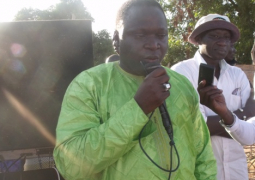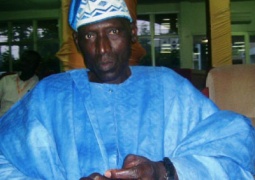She spoke at length of FAO’s priority area of intervention in the implementation of the country`s development blueprints such as the Vision 2016, the Programme for Accelerated Growth and Employment (PAGE), Agriculture and Natural Resources Sector Policy and the Gambia National Agricultural Investment Plan (2009–2015), among others, including the development priority areas.
The FAO country representative was speaking in an exclusive interview with this reporter at her office in Fajara recently.
She said The Gambia is a member country of FAO, which has a mandate to assist member countries to eradicate poverty, to end hunger and support new agricultural developments.
All these are priorities of the Gambia government, and many other countries in Africa and the world over, she said, adding that FAO’s work is in agriculture, food crops and livestock.
The FAO also provides technical and financial support to enhance crop productivity, livestock productivity, as well as crop protection and livestock protection.
These areas most times require an emergency response, when there is need to bring in agricultural inputs to support farmers, she said.
“We have many projects of intervention such the MGDC1 Project, which is an European Union-funded project.
“The aim is to enhance productivity of food security among smallholder farmers, especially women,” she said, adding that the FAO in the past had other projects like the Italian-funded FISCA Project, which focused on enhancing smallholder capacity in value addition in the processing of products such as Wonjo and Findi.
The FAO’s other programme is improving breeding of poultry, vaccination of cattle, livestock and poultry against diseases.
In the area of policy and strategic development, she noted, the FAO had been fortunate enough to provide technical support and contribute to the formulation of policies such as the ANR policy.
“FAO worked in collaboration with government and other partners in formulating this policy, that has been guiding the agricultural natural resources sector in The Gambia over the years,” she said.
Another area of work in which the FAO was privileged to participate in the country was institutional strengthening, especially working with units such as the policy and planning unit in the Ministry of Agriculture, to strengthen their capacity to collect information, to analyse information and to disseminate information pertaining to livestock and other issues such as food prices in the agricultural sector.
She said the FAO was often asked to contribute and assist in the formulation of projects, especially complex agricultural projects, adding that the FAO helps in resources mobilisation by putting up ideas together to harmonise what they wanted to do.
Read Other Articles In Article (Archive)
Abubakarr Sidique Foundation donates to orphans
Dec 22, 2010, 11:56 AM



